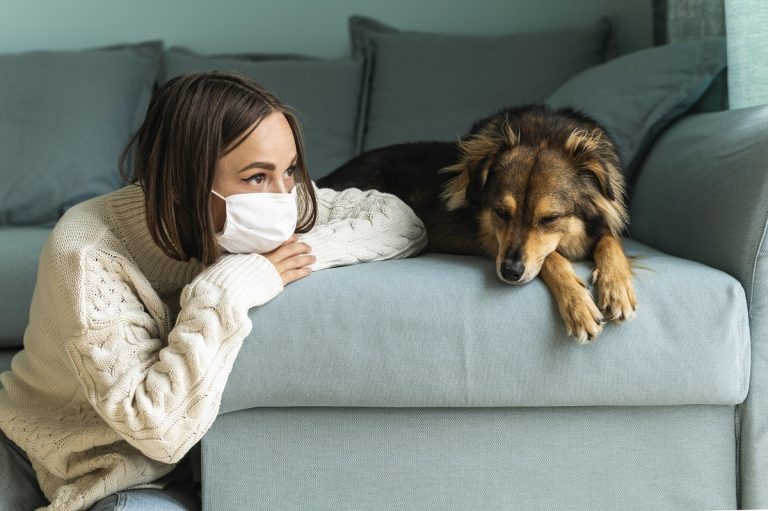People who have been fully vaccinated against Covid-19, or who have tested positive in the last three months, may not be required to quarantine after coming into contact with a confirmed case of coronavirus. The Ministry of Health reassured the public that all vaccinations against coronavirus in use in the Czech market, including AstraZeneca, are safe and effective. Photo Credit: Freepik / Illustrative Photo.
Czech Rep., Feb 23 (BD) – On Monday, the government discussed changes to the rules related to self-isolation. People may no longer be required to quarantine after coming into contact with a person who has coronavirus, if they received the final dose of a coronavirus vaccine at least two weeks earlier and are not showing symptoms. They must also have a vaccination certificate or be registered in the central vaccination system.
“Quarantine will no longer be required for people who have had a laboratory-confirmed illness no longer ago than 90 days, as well as for people who have finished a course of vaccination. In other words, fourteen days after the second dose of a two-dose vaccine, or the first dose of a single-dose vaccine,” said the Minister of Health, Jan Blatný (ANO).
The Ministry of Health announced that 196,000 vaccines will arrive this week and 176,000 will follow next week. More vaccines are being sent to the three worst affected regions: Karlovy Vary, Hradec Králové and Plzeň.
V tomto týdnu přijde 196 tisíc vakcín. Další týden pak 176 tisíc. Do tří nejpostiženějších krajů posíláme další vakcíny. Celkem 3 510 dávek Pfizer/BioNTech se nám podařilo domluvit navíc pro @hkregion, @Karlovarskykraj a do Plzeňského kraje.
— Ministerstvo zdravotnictví (@ZdravkoOnline) February 22, 2021
According to the Ministry of Health, over 545,000 vaccinations have been administered and over 207,000 people have been fully vaccinated. Around 93% of vaccinations have been with the Pfizer/BioNTech vaccine, followed by Moderna and then AstraZeneca (less than 2%).
Due to uncertainty about the efficacy of the AstraZeneca vaccine on the elderly, several countries are not using this treatment, but the Czech Republic is not among them. Vaccinologist Roman Chlíbek said that the AstraZeneca vaccine is effective in all age groups older than 18, including seniors over 65.
The Czech Vaccinological Society recommends that healthcare professionals administer the second dose of AstraZeneca after 12 weeks. “Recent studies have shown that if the second dose is given only after three months, its effectiveness increases sharply,” said Chlíbek, chairman of the society. The AstraZeneca vaccine has proven effective against the British mutation, but, as Chlíbek explained; “If other mutations, such as those from South Africa or Brazil, were to spread, the effectiveness of the vaccines would not be so strong there, the vaccines would have to be modified.”
In the future, people will not be given the choice over which vaccination they receive, due to the limited number of vaccines supplied. One potential benefit of vaccination will be for travellers who currently have to submit tests and quarantine when entering the Czech Republic. With proof of vaccination, this may no longer be necessary and could also apply when travelling to other countries. However, there is no consensus on how individual countries in Europe would recognise vaccination certificates, according to Chlíbek.









